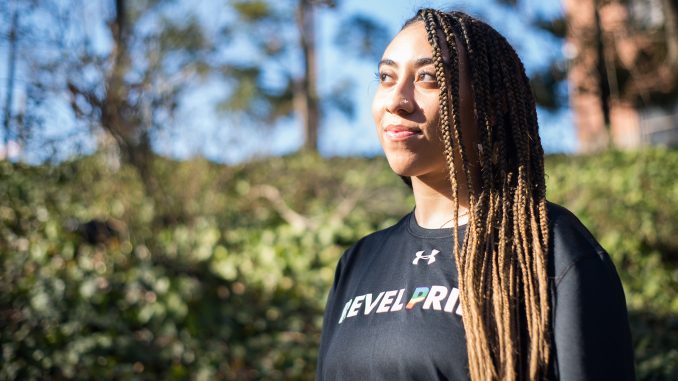
Despite the spread of LGBTQ visibility, there are still many parts of the world where LGBTQ people and their rights aren’t recognized, according to a 2019 world report by Human Rights Watch.
Countries, including Antigua and Barbuda, Barbados, and Jamaica, still have some form of anti-LGBTQ legislation in place, according to the Humans Rights Watch.
Historically, Caribbean countries have taken anti-LGBTQ stances. The influence from British colonial rule is still present within discriminatory legislation, according to OutRight Action International, an LGBTQ human rights advocacy group.
Guyana, for example, has a “savings clause” in its constitution that protects former British laws from review, even if the laws counter fundamental human rights, making it hard to challenge these laws.
However, in April 2018, the Trinidad and Tobago High Court declared a law that criminalized homosexuality unconstitutional, NBC News reported.
Still, these laws have influenced Caribbean people’s opinions of the LGBTQ community. Ariel Keen, a junior psychology major with a criminal justice minor, receives both acceptance and resistance toward her identity as a bisexual Jamaican woman.
“When I came out to my dad as bisexual, he was cool about it, and I told him I was scared to tell him and he said ‘At the end of the day, you are who you are. Who am I to stop you?’” she said.
But coming out to other family members, Keen didn’t receive the same positive reaction.
“[My grandmother] was like, ‘I know who you’re going to end up with in the future, it’s Adam and Eve, not Adam and Steve,’” Keen said.
Keen finds it frustrating to deal with family members who hold these homophobic views.
“I don’t like the close-mindedness, and I’ve dealt with that mindset with my own family,” Keen said.
Allicia Jagnarine, a junior neuroscience and psychology major who is Guyanese-Trinidadian, is disheartened by the region’s anti-LGBTQ stance.
“I feel that the islands themselves are less progressed with equal rights,” she said. Discrimination within the community is horrendous and people are being oppressed and even being killed for this.”
While most of the anti-LGBTQ laws aren’t heavily enforced, a strong stigma against LGBTQ individuals remains and upholding these laws serves as a reminder of those beliefs.
“This mindset is very ignorant and oppressive and having this mindset is holding the Caribbean back from progressing toward eliminating its violence and inequality,” Jagnarine said.
“I feel like it has a lot to do with religion, Christianity specifically,” Keen said. “People tend to have a conservative side to them, having very traditional values.”
Jagnarine also believes religion is why people in Caribbean countries hold onto homophobic beliefs.
“Many Abrahamic religions were carried into the West Indies, and it has greatly influenced the viewpoints and beliefs,” Jagnarine said.
In recent years there have been efforts made to spread LGBTQ acceptance. In 2015 Jamaica held its first pride celebration, the Guardian reported. Guyana along with Trinidad and Tobago held their first pride parade in 2018 despite backlash from religious groups who opposed it, the Washington Blade, an LGBTQ newspaper, reported.
“Being queer and Caribbean is just who I am, and it’s my responsibility to encourage other queer Caribbean people to be themselves by creating safe spaces,” Jagnarine said.
As for Keen, she doesn’t want the influence of other people’s opinions to affect her life.
“Always stick to what you think is best for your life, don’t change who you are because someone won’t accept it, always live your truth,” Keen added.


Be the first to comment